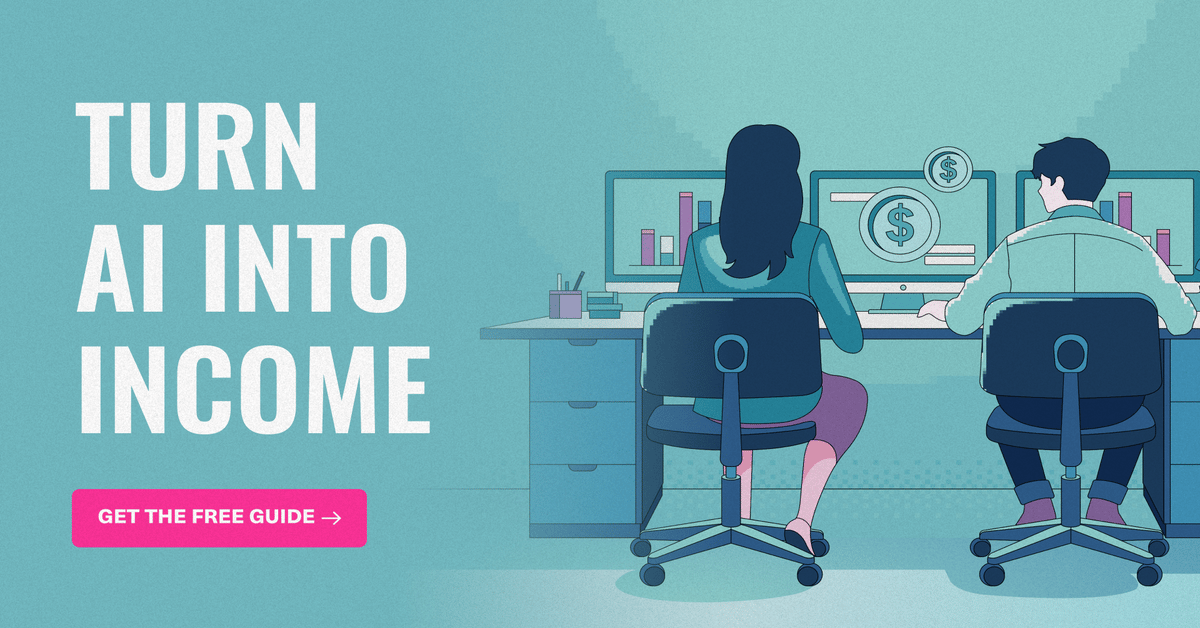- Insightful AI
- Posts
- Microsoft opens the doors to more AI-powered Windows apps
Microsoft opens the doors to more AI-powered Windows apps
PLUS: How AI safety took a backseat to military money

In this Newsletter Today:
Microsoft opens the doors to more AI-powered Windows apps
How AI safety took a backseat to military money
Spotify is finally taking steps to address its AI slop and clone problem
Top New AI Tools
Top Publishers Hand-Selecting Amazon Brands to Promote this Holiday Season
This holiday season, top publishers are actively sourcing brands to include in their gift guides, newsletters, listicles, reviews, and more to drive high-intent shoppers straight to Amazon storefronts.
Here’s why it matters:
Amazon brands are seeing a 5:1 conversion rate compared to their DTC site
Millions of shoppers discover products through trusted publishers
Levanta is working directly with these publishers to introduce them to a small number of 7–9 figure brands.
If you qualify, your products could be featured in high-traffic placements that deliver predictable CAC and directly measurable sales.
Microsoft opens the doors to more AI-powered Windows apps
Microsoft's Windows ML platform is now generally available for developers to integrate AI into Windows applications. Compatible with devices running Windows 11 24H2 or later, Windows ML offers a local AI inference framework to create responsive, private, and cost-effective AI experiences. The platform allows apps to leverage the optimal hardware for specific tasks—such as GPUs for high power needs, NPUs for efficiency, and CPUs for flexibility—via execution providers managed by Windows ML. Initially revealed in 2018 for Windows 10, the platform has attracted software developers like Adobe, McAfee, and Topaz Labs during its development phase. Upcoming adaptations include Adobe's Premiere Pro and After Effects utilizing local NPUs for features like semantic search and scene edit detection, McAfee employing Windows ML for deepfake detection, and Topaz Labs creating AI-driven editing tools. Microsoft aims to enhance the appeal of its operating system through this streamlined AI development process.
How AI safety took a backseat to military money
In a recent episode of Decoder, host Hayden Field discusses the implications of the generative AI boom with Heidy Khlaaf, chief AI scientist at the AI Now Institute. Khlaaf, who has a background in AI safety for autonomous weapons, addresses the concerning trend where companies that previously prioritized safety are now focusing on military applications. OpenAI, for instance, lifted its ban on military uses in 2024 and has partnered with Anduril, a maker of autonomous weapons, while also signing a $200 million contract with the Department of Defense. Similarly, Anthropic has collaborated with Palantir for defense and landed a $200 million DoD contract. Major corporations like Amazon, Google, and Microsoft are also advancing AI products for defense, despite facing significant criticism from activists and employees.
Field and Khlaaf explore the motivations behind this shift and the associated risks of using generative AI in critical areas. Khlaaf voices her concerns about the potential for military-grade AI to be misused by adversaries constructing harmful weapons, including chemical, biological, radiological, and nuclear arms. This indicates a growing recognition within AI firms regarding the urgent threats posed by such technologies and underscores the ethical responsibilities tied to technological advancements in the AI sector.
Spotify is finally taking steps to address its AI slop and clone problem
As AI-generated music rises with platforms like Suno and Udio, Spotify is addressing the challenges it poses regarding authenticity for artists and listeners. The company has introduced new policies to combat "slop," impersonation, and enhance transparency in AI usage. Collaborating with DDEX, Spotify aims to create a metadata standard that requires disclosure of AI's role in music creation, covering AI contributions in various processes. Although 15 record labels are on board, implementation timelines are pending. Spotify is also working to prevent impersonation through AI and has developed a spam filter that has removed 75 million spam tracks in the past year. Regarding claims of AI music affecting artist payments, Spotify's Duboff denies these, asserting that all music is third-party sourced and curated to ensure quality and engagement.
Turn AI Into Your Income Stream
The AI economy is booming, and smart entrepreneurs are already profiting. Subscribe to Mindstream and get instant access to 200+ proven strategies to monetize AI tools like ChatGPT, Midjourney, and more. From content creation to automation services, discover actionable ways to build your AI-powered income. No coding required, just practical strategies that work.
- DO ME A FAVOUR -
If you find this email in your ‘Promotional or Spam’ tab, please move this email to your Primary Inbox.
I work so hard to bring all the latest AI news, tips, and tutorials directly to your inbox so that you don’t have to do the research by spending hours.
But if you don’t get to read my email, we both lose something.
I request you to move this email from the ‘Promotional Tab to Primary Inbox,’ so that you never miss my email and keep learning all the latest happenings in the AI Industry.
How would you rate this newsletter?Your feedback is greatly appreciated and will help me improve future editions. Please take a moment to rate this newsletter on the scale below. |
What did you think? We’re always looking for ways to improve. Reply with any feedback or interesting insights you might have!



Reply